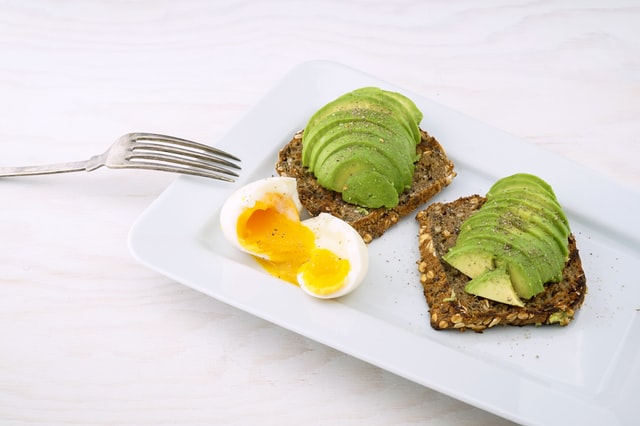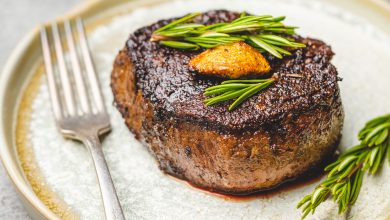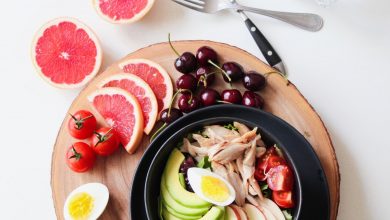
A Realistic Look at 1,200 Calories Per Day
If you’ve ever tried losing weight or have done some research on popular diets, you might have run across the diet that consists of consuming no more than 1,200 calories per day. The 1,200-calorie per day diet plan may not be the easiest to follow, but many dieters swear by its effectiveness.
Below, we’ll review the details of what the 1,200-calorie diet plan is, potential benefits and drawbacks of the program, and tips for eating on a calorie-restrictive diet like this.
What Is the 1,200-Calorie Diet Plan?
It’s not uncommon for diet plans to follow certain calorie restrictions. That being said, the 1,200-calorie per day diet plan is one of the more restrictive plans to follow. Followers of this diet plan will essentially limit their entire food and drink intake each day to no more than 1,200 calories per day. To put it into perspective how many calories are being cut out of a regular daily diet, the average calorie intake for men is 2,500 for weight maintenance. The average calorie intake for women is 2,000 for weight maintenance.
It’s not uncommon for dietitians, nutritionists, and physicians to prescribe the 1,200-calorie diet plan to promote fast weight loss for some patients. However, unlike many other diets, the 1,200-calorie plan isn’t typically followed for longer than a month or so. It’s important to note that while low-calorie plans are popular and widely used by dieters, it’s recommended that you involve your physician in your diet plan to ensure you’re on a healthy track for weight loss.
While eating 1,200 calories per day is considered a low-calorie diet, some diets restrict caloric intake even further. For instance, some calorie-based diet plans call for eating between 800-1,200 calories per day. In comparison, even more restrictive diets can limit followers to no more than 800 calories.

Positives of Calorie Restriction and Reduction
Calorie restriction, in general, has been shown through studies to be potentially helpful. A recent study published by the National Institute on Aging, calorie restriction showed promise in providing health benefits to people under 50. Some of the noted possible benefits of lowering calorie consumption were:
- Heart disease risk reduction
- Reduced cholesterol
- Weight loss
- Reduced inflammation
- Decreased waist measurements
- Lowering of blood sugar
It’s important to note that the study above was not explicitly conducted on 1,200 calories per day but required participants to reduce their caloric intake by 25 percent.
Negatives of Following the 1,200 Calorie Diet
Significantly reducing your calorie intake can impact your health substantially. Before engaging in following a low-calorie diet, it’s important to be aware of possible negatives and how they may interact with your health. Below are some common negative side-effects that can be experienced when following a low-calorie diet:
- Nausea
- Increased hunger
- Gallstones
- Severe or prolonged headaches
- Dizziness
- Exhaustion or fatigue
- Malnutrition
It’s also important to note that while the 1,200-calorie per day diet can lead to quick weight loss, it may not be conducive to long-term weight loss. Generally, when a restrictive diet is stopped, it can be easy for weight to be regained when normal eating habits are resumed.
Staying Safe
While it’s important for everyone to take proper precautions when following the 1,200-calorie diet, there are some people who this particular plan may not be safe for. The below categories of people should most likely not engage in low-calorie diets, unless directed by their physician:
- Women who are pregnant
- Breastfeeding mothers
- Individuals who are under the recommended weight
- Children
- Individuals whose doctors have recommended against calorie reduction
- Individuals who suffer from malnutrition

Meal Plan Inspirations
Staying within a 1,200-calorie per day limitation isn’t easy. If you are currently on a low-calorie diet or are planning to begin one soon, it can be helpful to have some go-to food and snack ideas. We’ve put together some suggestions below to help get you started:
Breakfast Options
- Two hard-boiled eggs
- One cup of fat-free cottage cheese topped with your choice of fruit
- One cup of reduced-fat yogurt topped with your choice of fruit
- Low-fat fruit smoothie
- One cup of rolled oats topped with your choice of fruit
- One cup of whole-grain, low-fat cereal with one-half cup of low-fat milk
Lunch Options
- Sliced avocado topped with salsa
- Two low-calorie rice cakes topped with hummus
- One can of tuna mixed with olive oil, salt, and pepper
- One turkey sandwich with low-fat mayonnaise, lettuce, and tomato
- Greek salad with low-fat dressing, olives, tomato, and low-fat feta cheese
Dinner Options
- Pork chop with sweet potato and a side salad with low-fat dressing
- Poached salmon and asparagus
- One cup of whole-wheat pasta with sauce and a side salad with low-fat dressing
Snack Options
- Ten almonds
- One string cheese serving
- One-fourth cup of hummus with celery sticks
- One apple sliced and one-fourth cup of low-fat peanut butter
- One piece of fruit, your choice
- One serving dark chocolate
- Avocado on whole-wheat toast
Alternative Diet Suggestions
When the 1,200-calorie diet plan isn’t right for your weight-loss goals or health, you can make other effective diets and lifestyle changes that might work better. Consider the following alternative diet suggestions:
- Increase Your Activity – Sedentary lifestyles aren’t conducive to weight loss and similarly aren’t good for heart health. It’s recommended that at least 150 minutes of aerobic exercise is performed per week. If you are able, getting more exercise than the minimum can help promote weight loss.
- Reduce Carbs – One popular dieting method consists of reducing carbohydrate and sugar intake as much as possible. While you don’t have to monitor calorie intake on this type of diet, you will need to watch your consumption of pastas, sugars, breads, starches, and other similar foods more closely.
- Try the Whole Food Diet – When you focus on eating whole foods, it essentially means you primarily subsist on fruits, vegetables, nuts, seeds, beans, eggs, fish, and other healthy proteins and fats. You won’t be able to eat sugar or processed food on this diet.



